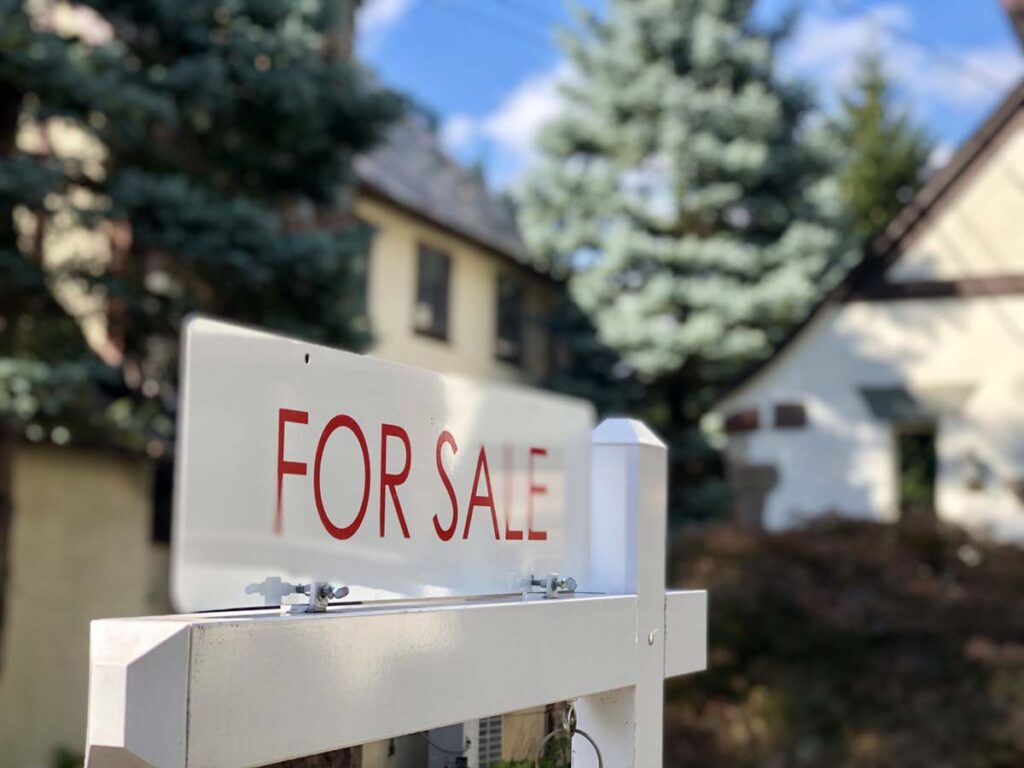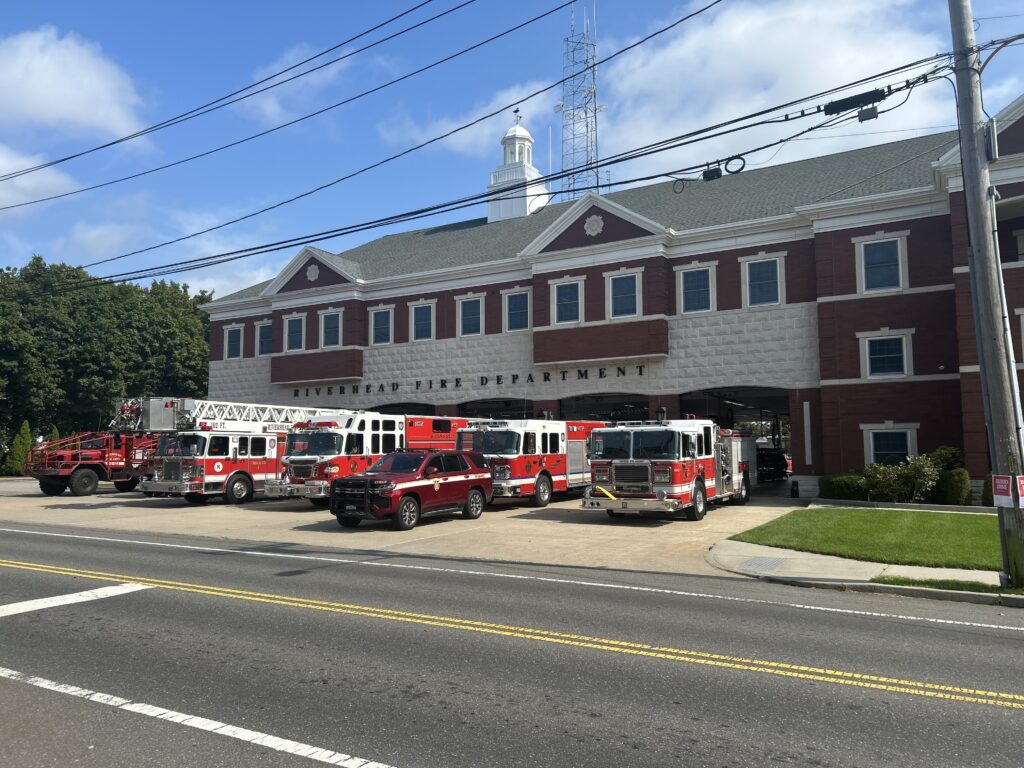Riverhead Charter School seeks permits for temporary classrooms

The Riverhead Charter School is actively searching for a new location to construct an expanded campus. In the meantime, however, its leadership is asking the Riverhead Town Board to consider a temporary solution to address the school’s growing enrollment numbers.
A public hearing was held Tuesday night on a special permit application submitted by the charter school seeking approval to install three 960-square-foot temporary trailers on a 3.9-acre parcel at its 5117 Sound Ave. property.
Located within the Agricultural Protection zoning district, the plan is to use two of the three trailers as classrooms and the other for administration and faculty, according to charter school officials.
The two classroom trailers would each house 24 ninth-grade students this year while the single administration and faculty trailer would provide office space for four to six school staffers. One of the three portables had previously been placed on the property prior to obtaining town approval, but that structure has since been removed.
“Having portable access will be a great deal of relief for us,” said charter school Superintendent Raymond Ankrum. “Our goal is to not be at the Sound Avenue location [in six years] and to be at our new location.”
Mr. Ankrum and his attorney, John Farrell, said at the Tuesday night meeting that enrollment is expected to increase from 106 to 154 students this school year. In a clarification email sent to the Town Board Wednesday morning, Mr. Ankrum wrote that the updated number is 165 students plus 24 adult staffers.
According to its original November 2021 plans, the total number of occupants permitted in the Sound Avenue building is 237.
When Councilman Bob Kern asked Mr. Ankrum for the maximum number of charter school students he’d agree not to exceed at the Sound Avenue campus — assuming such a number would need to be approved by the Town Board — the superintendent responded 180 students.
“If it came to that, we would probably have to move administrative staff out of one of those trailers and convert that to a classroom space,” Mr. Farrell told the board. Mr. Kern expressed concern that the 180 cap might still be too high.
The superintendent said he anticipates further growth over the next six years, assuming students will complete their K-12 education at the charter school. This could mean up to 363 students enrolled in the charter high school by the 2029-30 academic year.
The pivot to portables came after the charter school dropped its plan to expand its high school on 12.3 acres on Sound Avenue — a proposal that fell apart due to public opposition and town zoning concerns. The charter school had previously identified another property for potential development, but the Town Board nixed a proposition to allow private schools — including charter schools — on industrial-zoned land.
“My client wants to leave this [Sound Avenue] property. They want to build a permanent solution for the students they have, they’ve been trying to do that for many years now,” Mr. Farrell said. “I think they would tell you they would rather be pulling building permits for the property next door than be here begging the board for approval for trailers — while they don’t even believe it’s ideal, it’s the best available solution to them at this time.”
Mr. Farrell confirmed that the charter school is in discussions to acquire another property. He could not reveal details about that property’s location, due to active negotiations and the fact that a contract is not yet in place between the parties.
Until then, Mr. Ankrum said, the three temporary trailers would cover this anticipated enrollment growth until the Sound Avenue building lease is up in six years. Each portable would have a capacity of 50 students, providing space for an additional 150 students.
With those enrollment figures in mind, Riverhead Supervisor Tim Hubbard questioned whether three portable trailers would be sufficient and expressed uncertainly about the charter school’s long-term plans.
“Honestly, if you had the property bought already and you had a building permit in, you’re still three years away from a new school, and we know that hasn’t happened yet,” Mr. Hubbard said. “What’s going to be the situation? Say that property doesn’t come to fruition and you can’t find another location. Now you’re stuck in that location again — when does it end?”
The Riverhead Charter School also has a campus on Route 25 in Calverton, which serves its elementary and middle school students, but Mr. Ankrum said there is no space there for any overflow. Mr. Hubbard noted that when he toured the Calverton facility, he noticed the middle school portion of the building was “jammed tight.”
The charter school manages enrollment through a lottery system, which is limited to prospective kindergartners entering the school. After receiving roughly 115 applications in April for the 2024-25 kindergarten class, school officials were able to accept only 80 students.
Applicants not selected in the lottery have the option to enroll in the Riverhead Central School District.
A handful of community members at the meeting expressed disapproval of the portable trailers and questioned the claim that they would be a temporary fix. One Aquebogue couple argued that this special approval is more of a “want, not a need.”
Councilwoman Joann Waski said the lack of planning for these significant enrollment increases is solely the fault of the Riverhead Charter School.
“I feel very, very sorry for the students that are a part of this, because I think the charter school is a great school and a great opportunity for a lot of children, and these children were failed,” Ms. Waski said. “It was not by this Riverhead Town Board; it was by the charter school.”
Mr. Ankrum admitted fault and said he would be willing to work with the board to put a limit to the number of years the trailers could remain on the property. He said he would also agree to come back to provide updates on charter school enrollment, so both parties can determine the next best course of action.
Mr. Ankrum said a strategic plan is in place to repurpose the Sound Avenue building as an administrative space, which will enable the charter school to gradually transition out of that facility while a new school is built.
He added that he hopes the charter school can continue to serve its growing student body while minimizing any potential impact on the surrounding community and said he looks forward to building a collaborative relationship with the Town Board to accomplish this.









